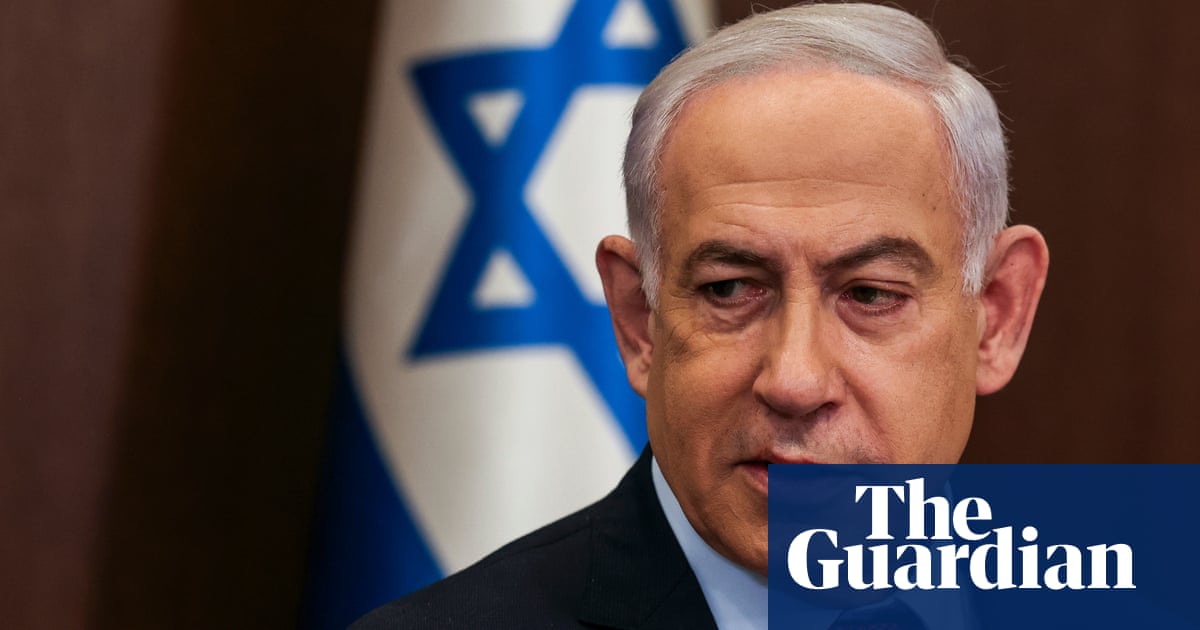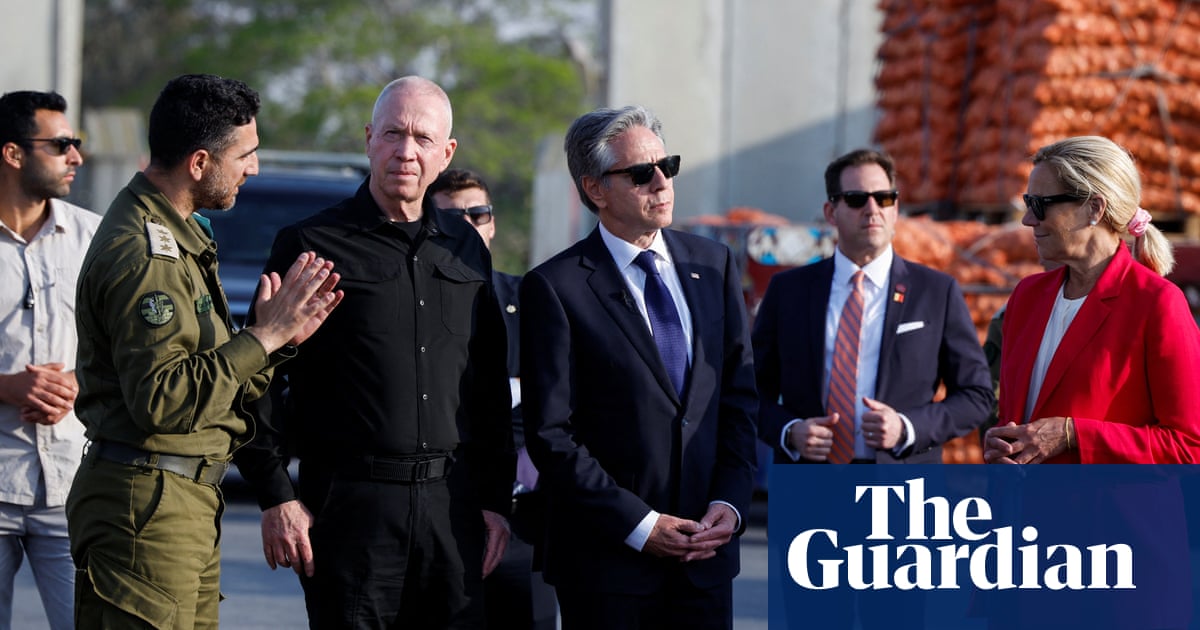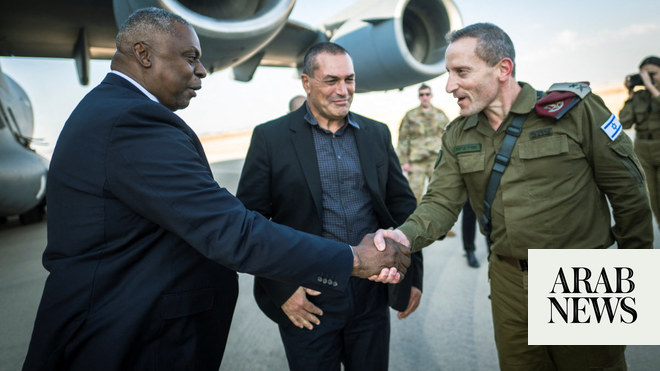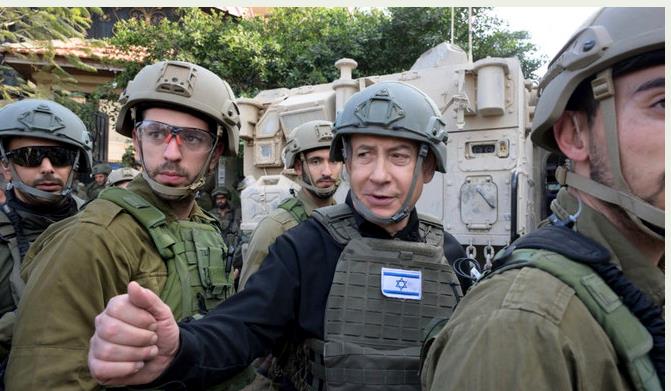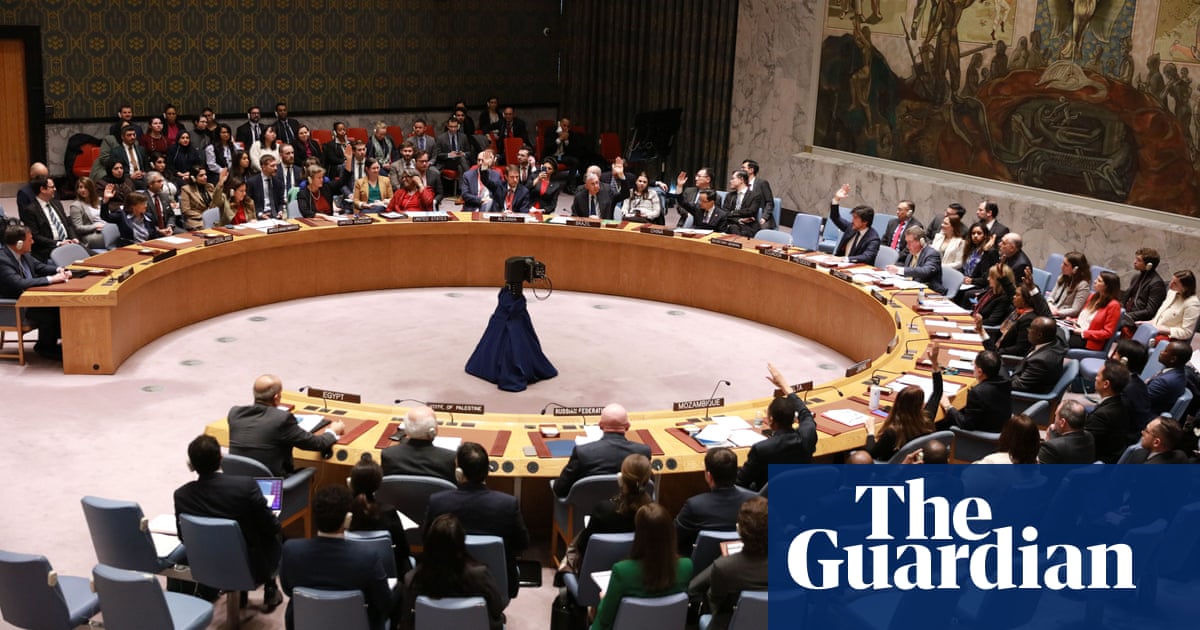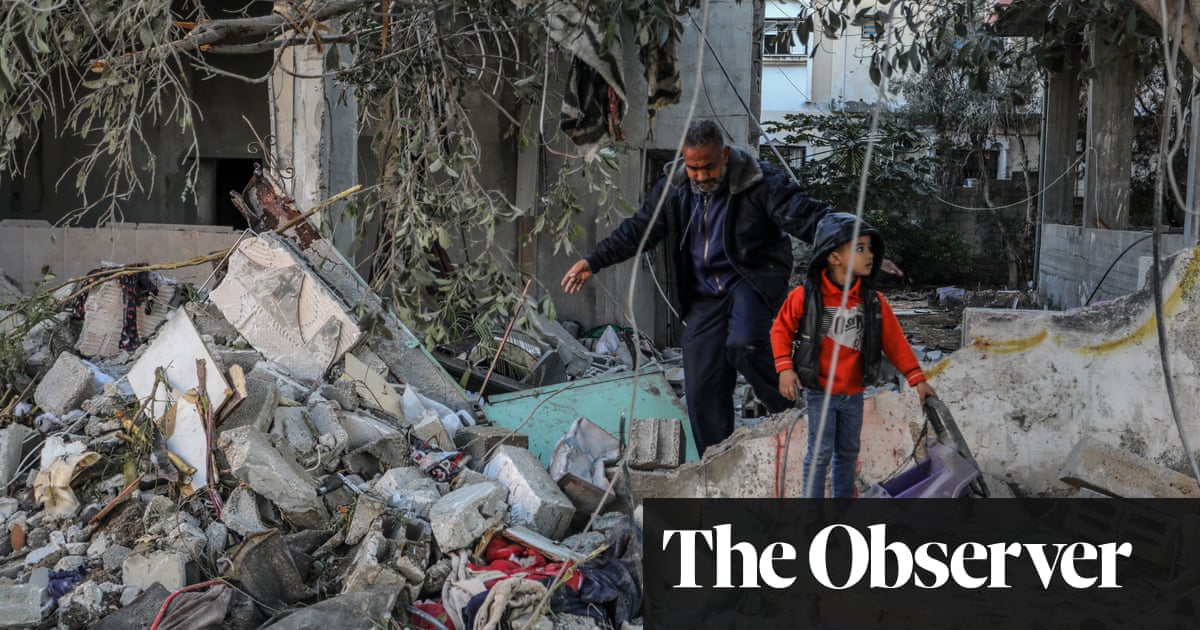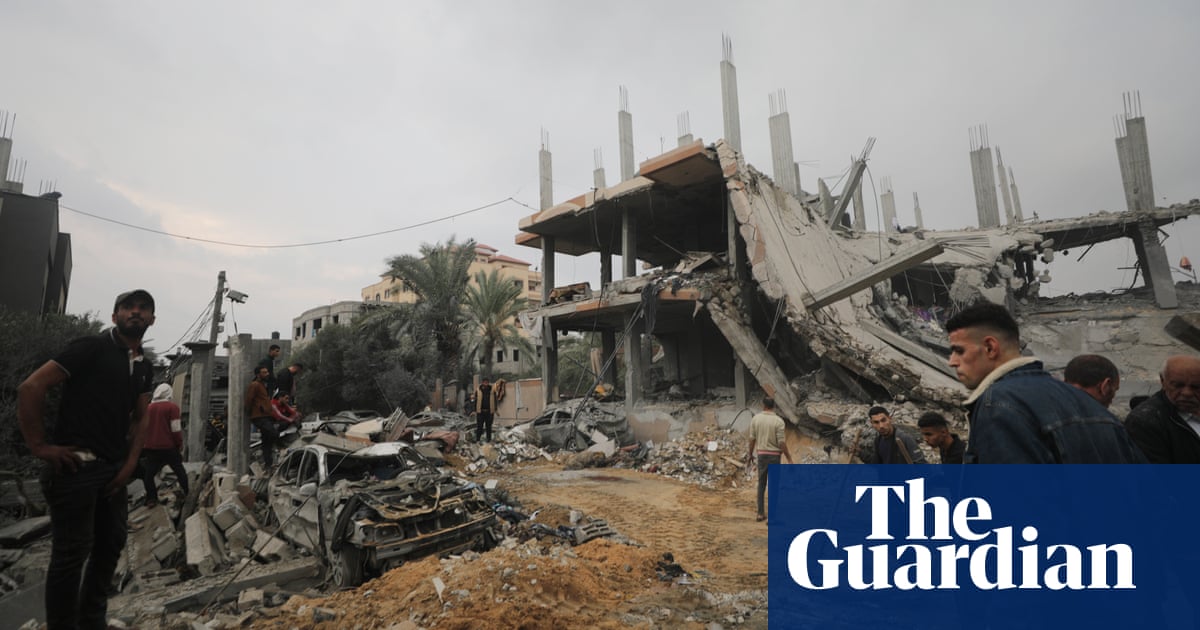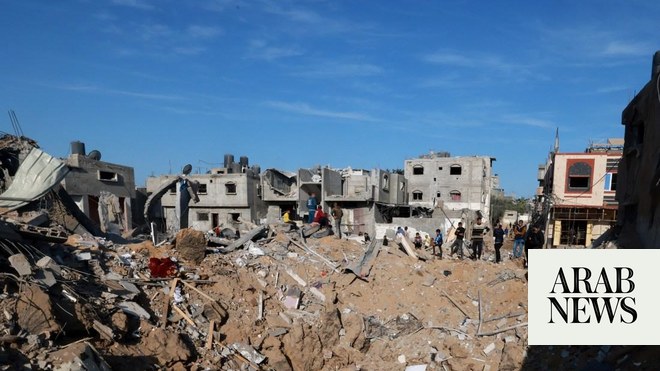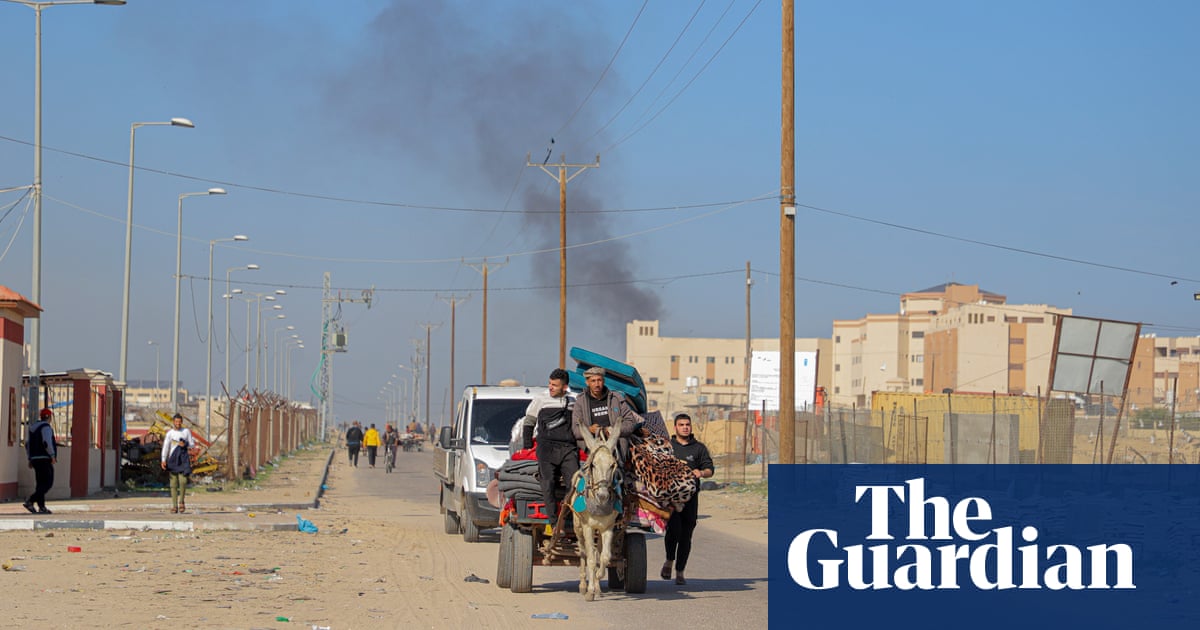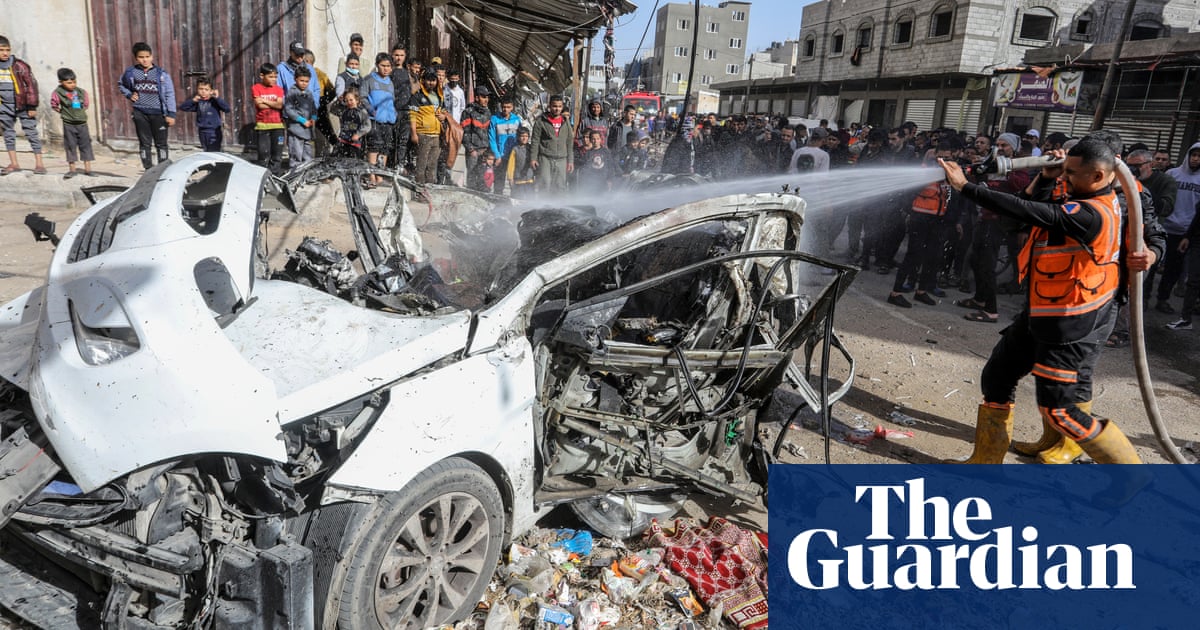
Israel is expanding its ground offensive in Gaza, ordering new evacuations in the west of the strip, as UN security council negotiations over a resolution intended to increase the flow of humanitarian supplies stretched into another day.
Israel’s military told people to leave their homes in al-Bureij, an urban refugee camp. It also said extra ground troops would head to fight in southern Khan Younis. Both areas were originally declared safe for civilians fleeing from the north.
Eleven weeks into the conflict nearly 85% of Gaza’s population has been displaced, and more than 20,000 people killed, most of them women and children.
That toll amounts to nearly 1% of Gaza’s population before the war began. Thousands more dead are buried under rubble across devastated towns and cities.
Overall, about a third of the structures in the strip have been destroyed or damaged, the Associated Press reported. “Gaza is now a different colour from space. It’s a different texture,” said Corey Scher of the CUNY Graduate Center, who has used satellite images to map the destruction.
Those Palestinians who have survived weeks of intense aerial bombardment are starving and ravaged by disease, the United Nations has warned, mostly crammed into overcrowded shelters and sprawling tented settlements, where there is no clean water and little sanitation.
About a quarter of the population – half a million people – already face catastrophic hunger, and with Gaza under blockade that number is expected to climb fast. The entire population faces “an imminent risk of famine”, the UN warned.
“It doesn’t get any worse,” Arif Husain, the chief economist for the UN World Food Programme, told the AP. “I have never seen something at the scale that is happening in Gaza. And at this speed.”
Despite the gravity of the crisis, a UN security council resolution intended to boost the flow of humanitarian supplies into Gaza has been delayed for a week by negotiations on wording, as diplomats sought to avoid a veto from the US, Israel’s staunchest ally.
Late on Thursday the US said it was ready to support a version with substantial amendments, including the removal of a call for an “urgent suspension of hostilities”. Israel has rejected calls to end its offensive in Gaza, saying its goal of destroying Hamas must be achieved first.
The US ambassador to the UN, Linda Thomas-Greenfield, said the US and Arab states had come up with an amended version Washington could support. “We’re ready to vote on it. And it’s a resolution that will bring humanitarian assistance to those in need,” she said. She denied it had been watered down.
But it was not clear whether other council members, particularly Russia, would accept the changes, which removed a call for an “urgent suspension of hostilities” to allow humanitarian relief.
Instead the resolution appeals for “urgent steps to immediately allow safe and unhindered humanitarian access, and also for creating the conditions for a sustainable cessation of hostilities”. The delay in voting until Friday allowed UN missions to consult their governments.
If it does pass, the removal of calls for a ceasefire may ease international pressure on Israel in the short term. But the scale of suffering in Gaza, and the prospect that it will intensify as the ground war continues, has led to growing unease even among Israel’s allies and fierce criticism from aid workers.
“That such a brutal conflict has been allowed to continue and for this long – despite the widespread condemnation, the physical and mental toll and the massive destruction – is an indelible stain on our collective conscience,” Martin Griffiths, the UN humanitarian affairs chief, wrote in a post on X.
Underlining that nowhere in Gaza is safe, an airstrike on a house in the southern city of Rafah, near the border with Egypt, killed six people including a child, the AP reported. A journalist for the agency saw their bodies at a hospital.
On Friday, Gaza’s health authority said 20,057 deaths had been recorded in the war. The Hamas-run government does not differentiate between fighters and civilians but most of the victims were women and children.
More than 53,000 people have been wounded, with many of those unlikely to get treatment. The health system is in collapse, with only nine out of 36 hospitals still functioning. Many have been targeted in Israeli attacks and raids.
On Thursday, troops stormed the Palestinian Red Crescent’s ambulance centre in the Jabalia refugee camp, taking away paramedics and ambulance crews, the group said. Some of the paramedics, including women, were released on Friday but eight remained in detention with their whereabouts not known.
Israel blames civilian casualties on Hamas, saying it uses facilities such as schools and hospitals as shields for military activity.
The war was launched on 7 October when Hamas militants broke through the border fence around Gaza into Israel, and massacred about 1,200 people, mostly civilians, and kidnapped more than 200 others. Israel’s military says 140 soldiers have been killed since the start of ground battles in Gaza.
A “humanitarian pause” in fighting in late November led to the release of more than 100 Israeli hostages, all women and children. In return, 240 Palestinians were freed from Israeli jails, mostly women and children, with the remainder 18-year-old young adults and one 19-year-old.
Although talks on another break in fighting are under way in Cairo, with Egypt and Qatar acting as mediators between the warring parties, there is little hope of an immediate breakthrough.
Hamas and another militant group that is holding hostages, Islamic Jihad, repeated on Thursday their position that there would be no more hostage releases until after a “cessation of aggression” by Israel.
Israel’s government is also focused on its military campaign. The prime minister, Benjamin Netanyahu, late on Thursday said war would not stop “until the goals are completed”.
He has shrugged off pressure from the families of those kidnapped, who say the return of their loved ones should be the country’s top priority. Their grief has been intensified by deaths of those held inside Gaza, including three who were shot by Israel Defense Force soldiers earlier this month.
On Friday, relatives announced that Gadi Haggai, 73, who it was thought had been taken hostage, actually died on 7 October and his body was taken into Gaza.




